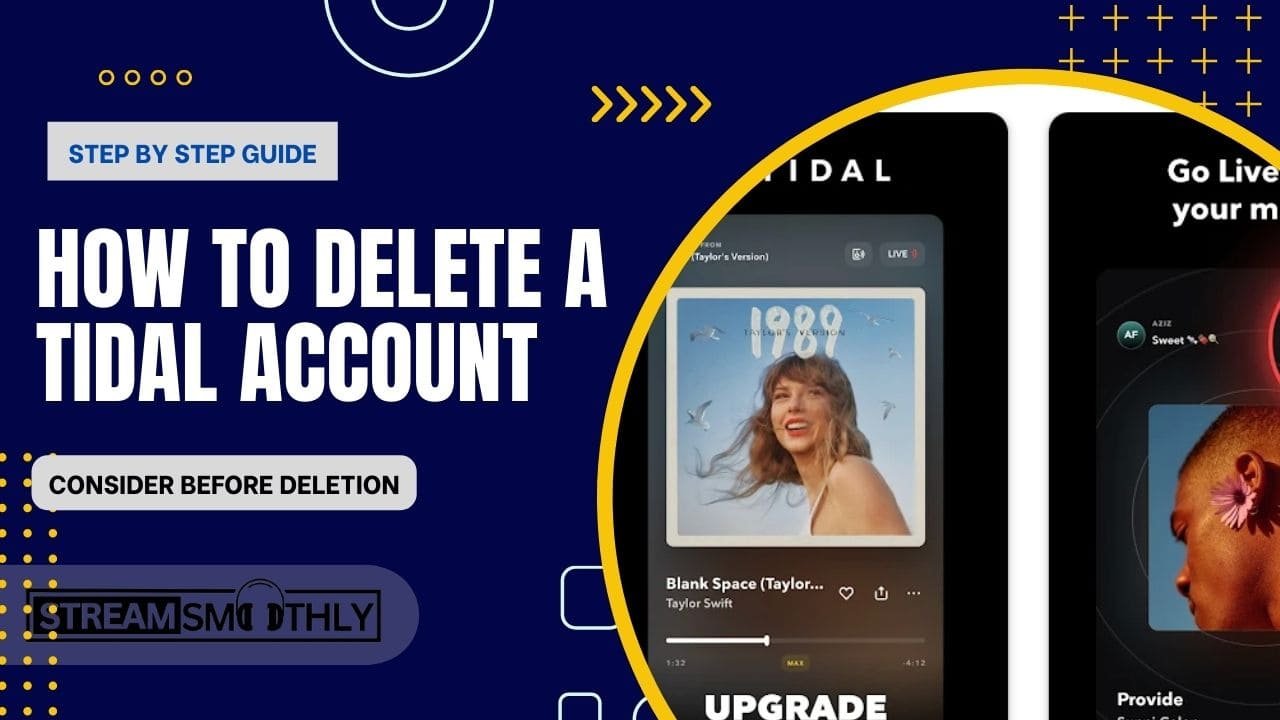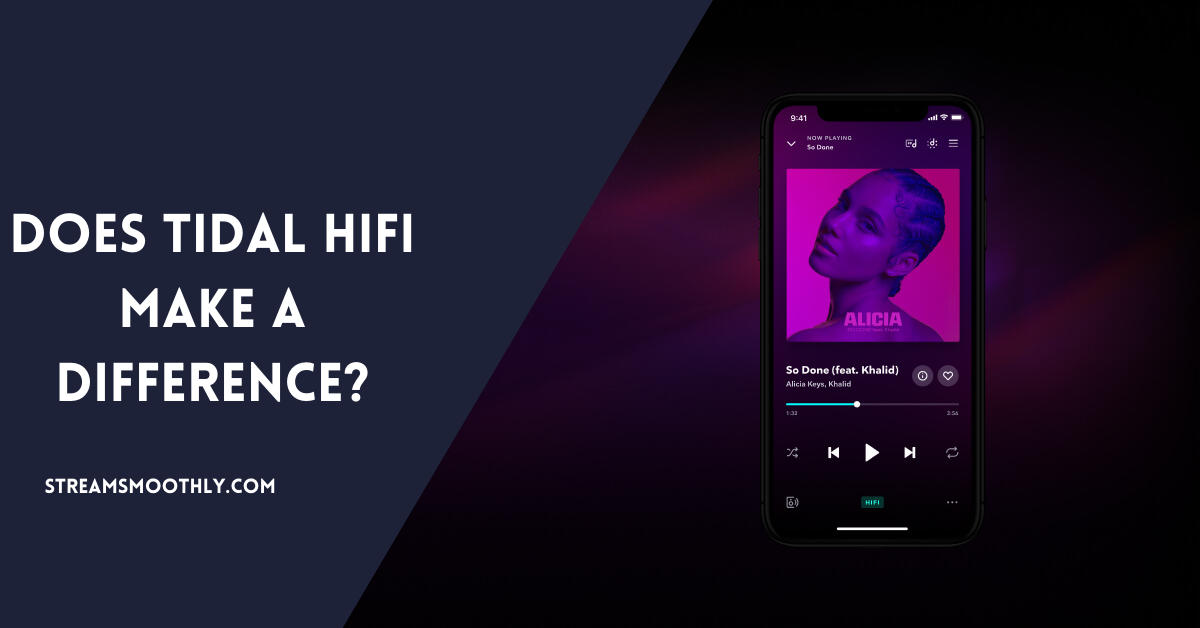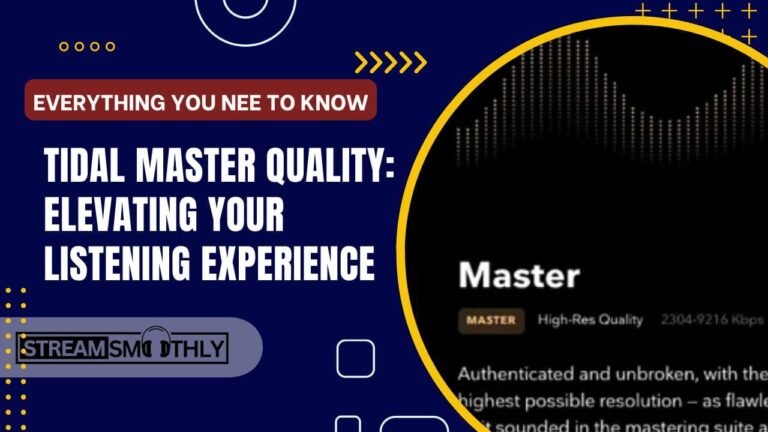Tidal Drops MQA: A New Era for High-Resolution Audio

Tidal offers a premium experience with its Master Quality Authenticated (MQA) format. However, starting July 24, 2024, Tidal will no longer support MQA. This marks the end of a significant chapter in the evolution of high-resolution audio on the platform. In this article, we will explore Tidal’s MQA and its potential advantages over other formats like FLAC.
Table of Contents
ToggleWhat Is Tidal MQA?
MQA, or Master Quality Authenticated, is a proprietary audio encoding technology that enables high-resolution audio files to be streamed at lower bitrates while retaining as much of the original sound quality as possible. Developed by Meridian Audio, MQA’s goal is to deliver studio-quality sound in a way that is efficient for streaming.
Tidal began offering MQA as part of its “Tidal Masters” catalog, which allowed subscribers to access high-resolution audio in a format that was supposed to mimic the “master” recordings—i.e., the versions that artists and producers hear in the studio.

Will Tidal Still Support MQA?
As of July 24, 2024, Tidal will no longer support MQA. All content previously offered in MQA will either be removed from Tidal’s catalog or replaced with alternative formats.
While the platform has not made a complete shift away from high-resolution audio, this decision signals the end of the road for MQA support. Tidal subscribers will still be able to access other high-quality formats, but MQA will no longer be a part of the picture.
Why Is Tidal Dropping MQA?
There has been a growing debate over MQA’s merits and its proprietary nature, with some audiophiles and experts questioning whether it truly delivers the benefits it claims. Additionally, MQA requires special hardware or software decoding (such as MQA-certified DACs) to experience the high-res audio fully.
For some users, this has been seen as a barrier to a truly open and universal high-resolution audio experience. Tidal may be moving away from MQA as part of a broader trend in the music industry toward more standardized formats, such as FLAC, which don’t require special decoding and are widely supported by a variety of devices.
Is Tidal MQA Better Than FLAC?
One of the central questions for audiophiles is whether MQA is truly superior to FLAC, the most popular lossless audio format.
FLAC (Free Lossless Audio Codec)
FLAC is a widely used, open-source lossless format that preserves all the details of the original recording without any loss of data. The key appeal of FLAC is its flexibility and the fact that it is uncompressed, meaning that there is no compromise on sound quality. FLAC files can be up to 24-bit/192kHz, offering a high level of detail and accuracy.
MQA vs. FLAC: Which Sounds Better?
While FLAC is widely regarded as a transparent and excellent choice for lossless audio, MQA’s value proposition lies in its ability to deliver high-quality audio while compressing files to smaller sizes, making them more suitable for streaming. MQA claims to offer a higher level of detail by retaining more of the “original” sound as intended by the artist and producer.
However, whether MQA is objectively “better” than FLAC depends largely on the listener’s setup and subjective preferences. Some audiophiles argue that MQA is a gimmick and that the format’s perceived improvements are marginal at best.
In many cases, listeners with high-end equipment might not notice a significant difference between MQA and FLAC, especially when played through DACs that don’t fully decode MQA. FLAC, on the other hand, does not suffer from the same controversy, as it is a lossless format with no hidden processing.
FLAC is a lossless, uncompressed format that guarantees high-fidelity sound, while MQA claims to optimize the listening experience with its unique encoding and decoding methods. Tidal’s decision to drop MQA could be an indication that FLAC is the safer, more reliable choice for high-quality audio.
What Is the Highest Sound Quality on Tidal?
Before MQA’s impending departure, Tidal offered its highest-quality audio through the Tidal Masters catalog, which included tracks encoded in MQA. These tracks were typically offered in 24-bit/96kHz or 24-bit/192kHz resolutions.
However, with MQA being phased out, users can still access high-resolution audio in the form of FLAC files, which can also be up to 24-bit/192kHz for many tracks. Tidal HiFi users can stream lossless FLAC files up to 24-bit/192kHz, making this the highest sound quality available after MQA’s discontinuation.
Summary of Sound Quality Tiers on Tidal:
- Tidal Free & Premium: Up to 320kbps MP3 (Standard Quality)
- Tidal HiFi: FLAC files (Lossless) up to 24-bit/192kHz
- Tidal HiFi Plus: High-resolution FLAC (Lossless) files, also up to 24-bit/192kHz, but without MQA.
If you’re an audiophile or enjoy listening to music at its best, the Tidal HiFi tier offers excellent sound quality, even without MQA. After July 24, 2024, all high-resolution files will be available in FLAC format, eliminating the need for special hardware or decoding and offering a more universally accessible solution.
Conclusion: What’s Next for Tidal Users?
With Tidal’s removal of MQA starting on July 24, 2024, the streaming platform will no longer offer its “Master Quality” streams. While this might be a disappointment for some fans of MQA, it’s a step toward simplifying Tidal’s high-resolution offerings. For most users, the FLAC format will be the highest-quality alternative available, offering up to 24-bit/192kHz resolution.
Whether or not Tidal’s decision will impact your listening experience largely depends on your setup and how much you value the specialized encoding techniques of MQA. With the focus shifting to FLAC and other standard high-resolution formats, Tidal’s future as a platform for high-fidelity music streaming looks promising, offering users a straightforward and reliable option for streaming music at its best.






